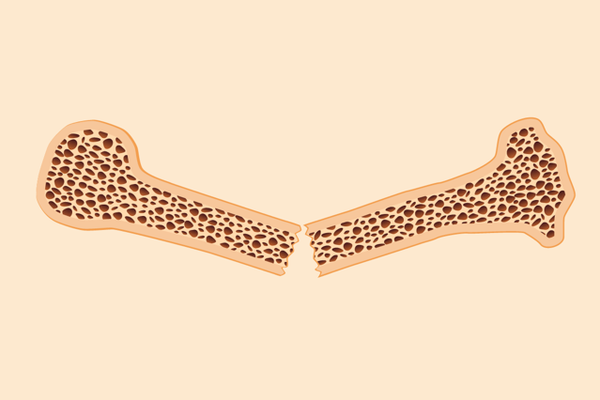By Natalie Miller Moore
If you think about arthritis, you may picture old creaky joints or crooked fingers. While that can be true, there are different kinds of arthritis that differ greatly from one another. For example, rheumatoid arthritis (RA) is an autoimmune disease, and most women are diagnosed with it in middle age (yes, if you've passed your 30th birthday but haven't started collecting retirement, you might fit in this category!).
Women are two to three times more likely to develop RA than men. Symptoms tend to appear earlier, between ages 30 and 60 for women, while for men, they usually show up later. When things are busy, our joints get sore—sitting at a desk for too many hours in a row, or not making it to the gym for a few weeks. But, there's more to spotting RA than just joint pain.
“Early signs of rheumatoid arthritis include feelings of increased fatigue or lack of energy and symptoms may be present for a few days or weeks then completely resolve, only to reoccur again. A person may have a low grade temperature that comes and goes or feelings of malaise," said rheumatologist Elena Flagg, M.D.
It's certainly challenging when one of the symptoms is “malaise"—defined as a general feeling of discomfort, illness or uneasiness whose exact cause is difficult to identify. So, be on the lookout for “feeling off"—something only you can identify. Also, look for a low grade temperature that comes and goes is often dismissed as “hormones" or “someone turned the heat up." Dry eyes or eye inflammation might also be a symptom of RA.
Paying attention to your body is one of the most important components of noticing when there's a change—you can't notice a difference if you just don't notice.
To help you take notice of your health, you can try:
- Keeping a journal of how you are feeling and note any symptoms
- Using your digital data to see how active you are over time—with a fitness tracker or smartphone app
- Sticking to a consistent schedule for a few weeks and take note of variations from day to day
- Making small changes and see if you notice a difference, like drinking more water or taking a daily walk.
Paying attention to your body can also help you identify a few other signs of RA, like fatigue, depression, and anemia. Lack of energy can cause all kinds of trouble, including poor appetite, lowered productivity, lowered sex drive and relationship problems. Knowing what your “normal" was and how things have changed is an important part of what you tell your health care professional. Yes, everyone has periods of stress and gets tired. But knowing when things just aren't right should be something that drives you to see a health care provider, especially if you also have joint pain.
Yes, joint pain is a bellwether of RA but it may start small—just one joint or the small joints of hands and feet. Joint stiffness isn't the only thing to watch—other joint symptoms including joint warmth, redness, swelling and tenderness. So don't discount it if you feel something odd in your joints but wouldn't call it pain, exactly.
Sometimes it's easy to forget that RA is an autoimmune disease. It affects the joints but that's not where the deterioration begins. It's at the cellular level that the body's immune system attacks the lining tissue of joints, causing the inflammation. It can also affect other organs like lungs, skin, eyes and heart.
That's why diagnosing RA as early as possible can help to prevent or limit damage to joints. It can also increase the likelihood that being on a targeted treatment can increase the chances of remission, and prevent increased or unusual symptoms.
One of the risks of waiting is damage to the heart, lungs or brain—not just increased joint damage, which is a pretty big concern on its own. Autoimmune diseases that are left untreated lead to internal damage—the overactive immune cells attack healthy cells all over the body.
The best way to avoid these consequences is to know what you're dealing with, getting a correct diagnosis and an effective treatment.
“Early diagnosis and treatment can help to improve one's quality of life overall and helps to reduce risk of secondary conditions such as heart disease and pulmonary disease," said Flagg.
It's not just treatment that's important but there are lifestyle changes that can help as well. Back to that idea of “knowing your body," once you know what is happening inside, you can make adjustments to the outside as well. Changing your activity level, managing stress and adding healthier foods to your daily diet can really help.
“An anti-inflammatory diet and staying active with exercise are important aspects of RA treatment and improve one's quality of life," she said.
Don't worry, an anti-inflammatory diet isn't much different from what nutrition experts recommend: more fresh food, more fiber and less meat and not too much saturated fat.
But diet alone won't change the course of RA, so make sure it's part of an overall treatment plan with your health care professional. It's better to know so you can take action, sooner rather than someday.
This resource was created with support from Genetech, Inc.







